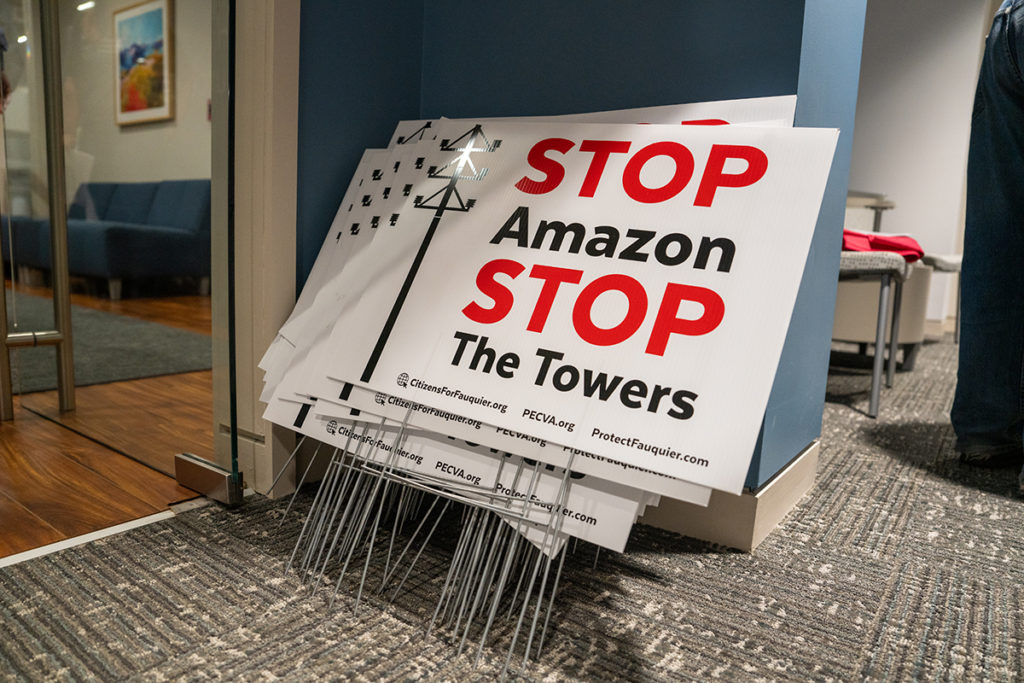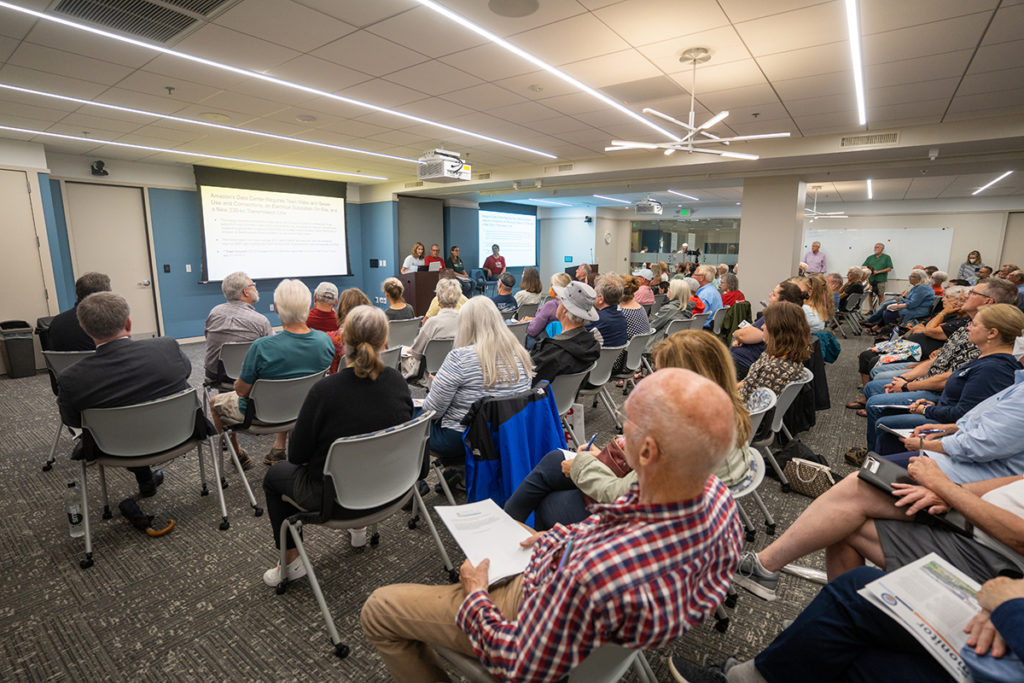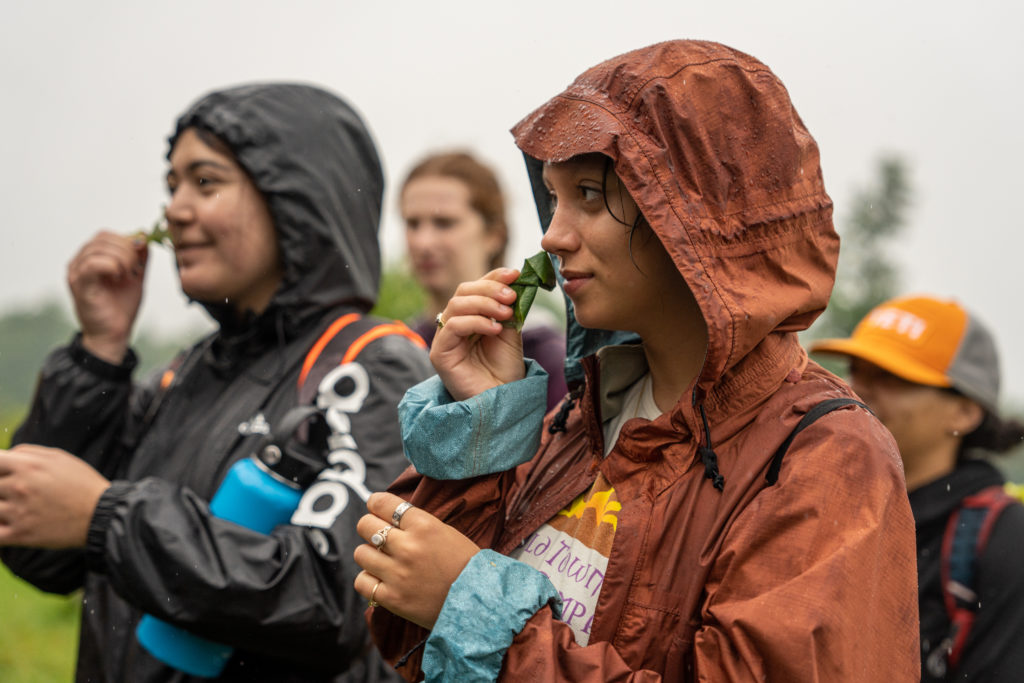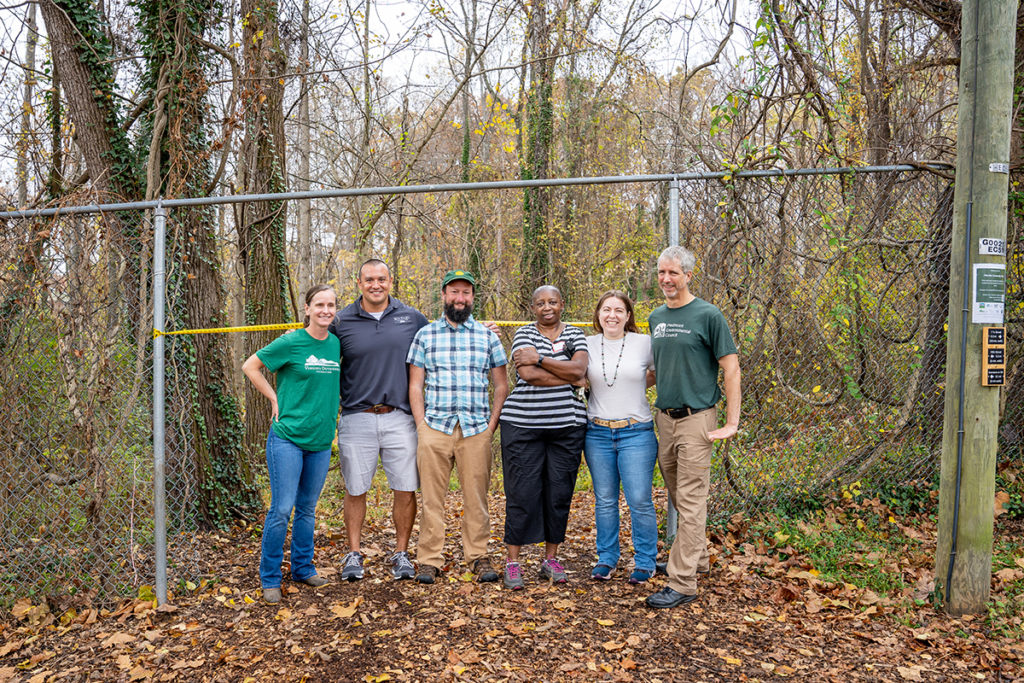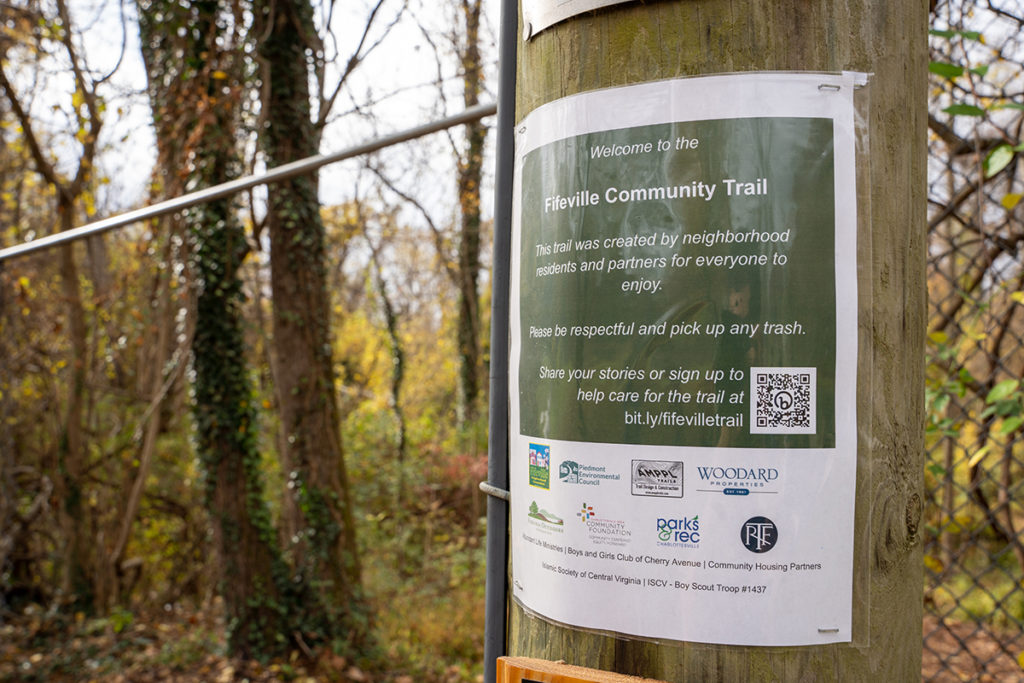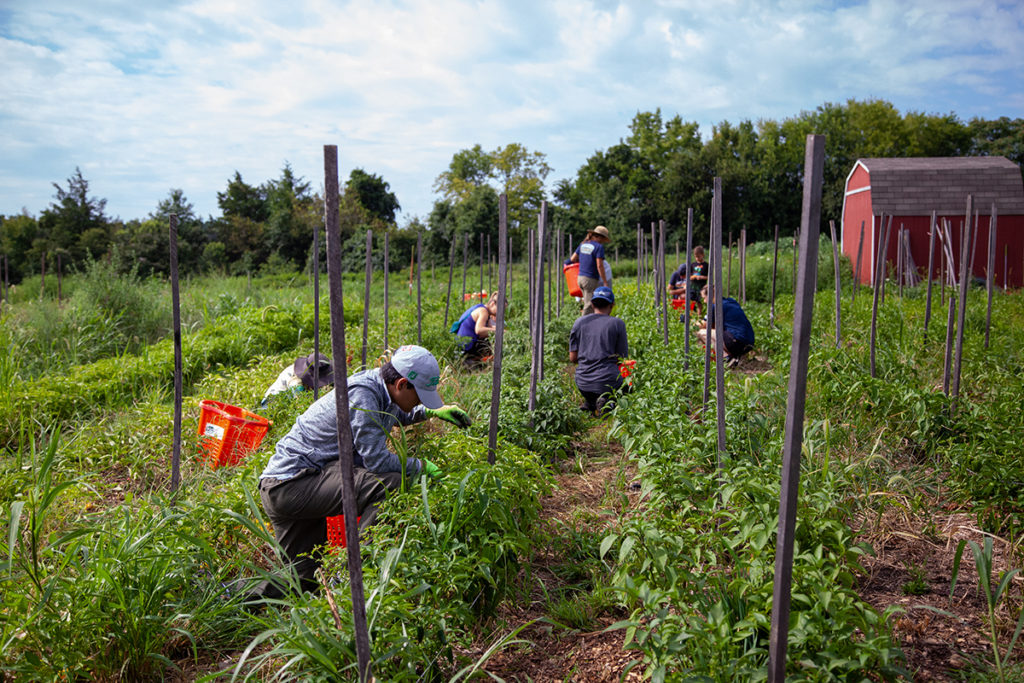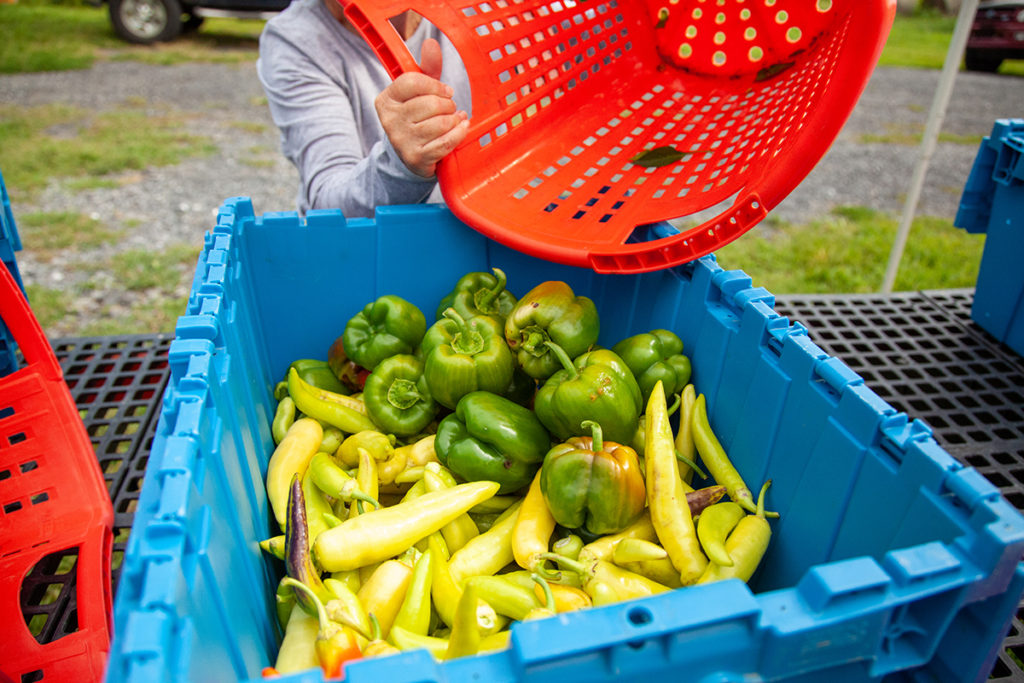
For the last 50 years, PEC has worked to establish a better future for this region through sustainable growth and protection of the region’s natural, agricultural and historic resources. This place is special today because of intentional efforts over decades by many committed individuals and communities.
Today, twenty-five percent of lands in our nine counties are permanently protected through a combination of public and private conservation programs, totaling over 500,000 acres, and local governments in our nine counties have some of the strongest land use policies for protecting our environment in the Commonwealth.
In 2022, the Piedmont faced increased pressure from many forms of development. PEC continued to invest in knowledge and expertise, propose constructive alternatives and hold the line against activities with unacceptable impacts.
We also embarked on some exciting new projects to build a sustainable future for the region from the ground up, proactively expanding conservation and restoration efforts, empowering local communities, investing in public access, and connecting consumers to local farms.
Below are a few highlights across our program areas in 2022. We hope they will provide inspiration for what the Piedmont can become — and the resilience for what can remain — in the decades ahead.
Expanding Conservation and Restoration Efforts
Protected land safeguards the region’s food and water supply, helps clean our air and protect our climate, and provides habitat for wildlife, among many other benefits. PEC is accelerating conservation and restoration by expanding both direct technical support for landowners and by advocating for funding from public and private sources.
PEC’s conservation staff have held more than 100 meetings with landowners in the last year, raising awareness about the easement process and encouraging the adoption of best management practices to restore ecosystem functionality on working landscapes. To date, PEC has helped conserve more than 430,000 acres in the Piedmont, and individuals and families are on track to add thousands of additional acres to that total in 2022. Lastly, PEC has assisted in creating new public access opportunities to connect residents to both rural and urban landscapes.
Protecting working farms: PEC is increasingly partnering with federal, state, local and private funders to purchase easements from landowners to ensure important farmland is protected. One of PEC’s top priorities is under-conserved areas with high levels of agricultural productivity in the Rappahannock-Rapidan watershed, which includes southern Fauquier, Culpeper, Madison and Orange counties. Right now, new federal investments provide a once-in-a-generation opportunity to bring partnerships with agricultural landowners and agencies to scale. This increased funding makes PEC well-positioned to realize its vision of a connected conservation corridor with healthy watersheds and a resilient agriculture-based economy.
Plantings for the Piedmont: Trees provide immense long-term benefits to our environment, from flood protection and water filtration to carbon sequestration and wildlife habitat. PEC provides free technical assistance, project design, materials and labor for the planting of native trees and shrubs in riparian zones in many of our counties. In 2022, we planted about 3,500 trees in the Potomac watershed (Clarke, Loudoun and parts of Fauquier) and 3,300 trees in the Rappahannock watershed (Culpeper, Madison, Rappahannock, and parts of Orange, Greene and Fauquier). James River watershed residents (in Albemarle and parts of Greene) can look for a similar program offered by the James River Association, the Virginia Department of Forestry and the Chesapeake Bay Foundation.
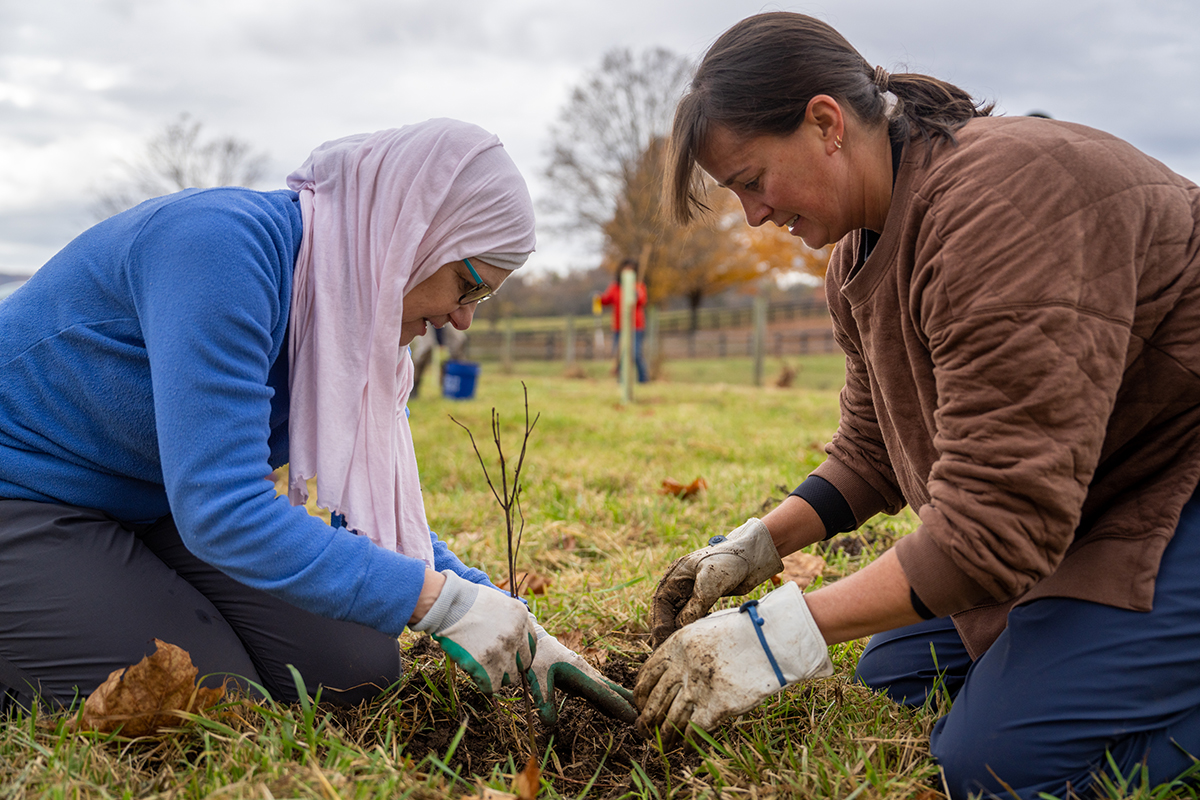
In defense of family farms: PEC worked closely with Del. Michael Webert to secure the unanimous passage of HB 996, a bill that helps prevent the loss of family farms and forest land by ensuring eligible landowners can participate in Virginia’s use-value taxation program. HB 996 specifically addresses an issue in existing law that keeps many heirs’ property owners from being able to participate.
Virginia Grassland Bird Initiative: Across North America, grassland bird populations are in sharp decline due to intense human impacts on their native grassland habitats. PEC, with the Smithsonian’s Virginia Working Landscapes, is working to reverse this trend in Virginia by helping farmers improve the resiliency of their working landscapes. This year, 10 property owners enrolled over 1,800 acres in our financial incentives program, adopting bird-friendly best management practices — delayed spring haying and summer pasture stockpiling. With additional lead partners American Farmland Trust and Quail Forever and new collaborations, VGBI is building capacity in 16 counties across the Piedmont, Blue Ridge and Shenandoah Valley.
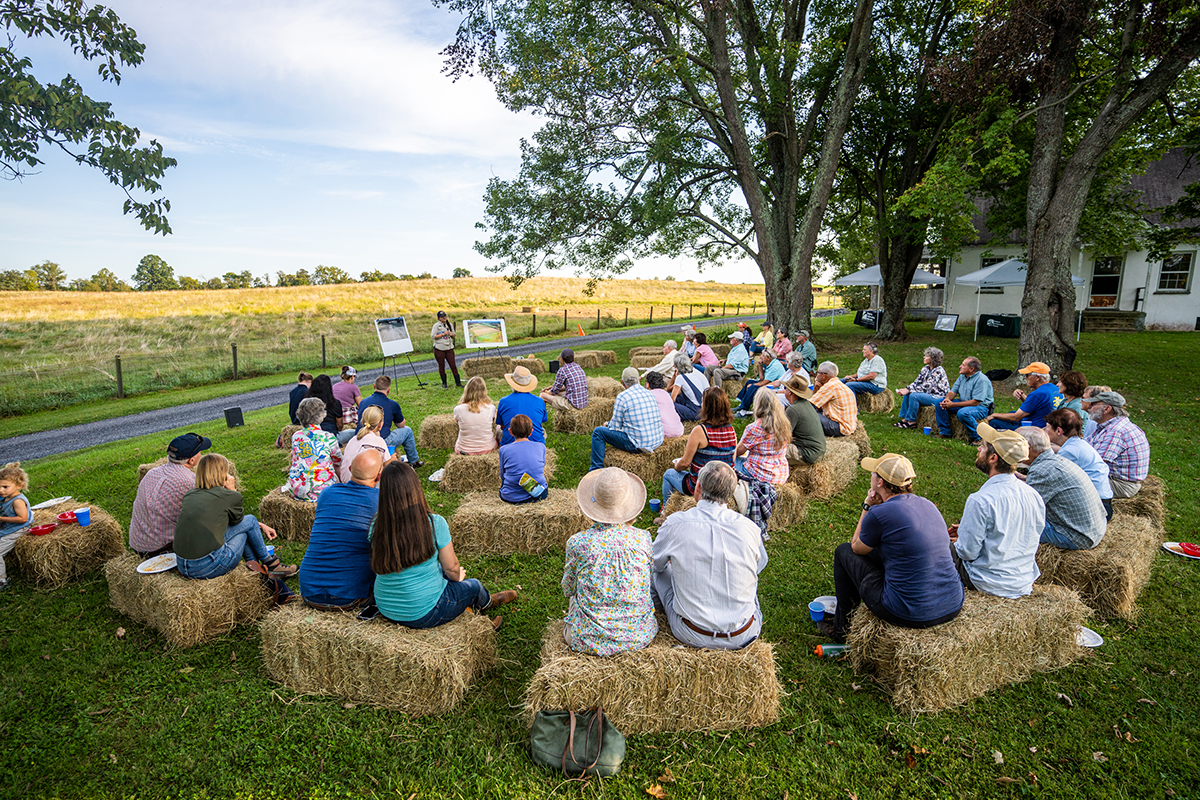
Empowering Local Communities
Local decisions matter, and the best outcomes rely on the consistent engagement and input of a broad array of community members.
Advising Comprehensive Planning and Zoning
A county’s comprehensive plan sets the framework for how land is used, identifies improvements needed on transportation networks and other public facilities, and provides a valuable guide for many other programs and needs. It impacts all decisions and regulations regarding growth and development for the upcoming 5-20 years. PEC has been deeply involved in this process since our founding in 1972. Through engagement in comprehensive planning, PEC works to curb costly sprawl and inefficient land use, enhancing the quality of life for residents, ensure natural and historic resource protection, and encourage a sustainable local economy. In 2022, PEC weighed in on comprehensive plans in Albemarle, Culpeper and Loudoun.
Albemarle County – Comprehensive Plan and Climate Action Platform: PEC is actively weighing in on Albemarle’s Comprehensive Plan update to ensure planning doesn’t move away from smart growth and rural conservation. The Comprehensive Plan also provides an immediate opportunity to implement meaningful climate planning, building momentum from the Climate Action Plan adopted in October 2020 and the Climate Vulnerability and Risk Assessment PEC helped fund this year. PEC is now developing a new document that summarizes our priority areas in support of Albemarle County’s climate change mitigation and adaptation work. Our goal is to collaborate with local government, residents and other partners to ensure everyone in Albemarle is prepared for current and future climate impacts. This Climate Action Platform will serve as a model for PEC’s work in other counties.

Culpeper County – Comprehensive Plan: Culpeper County is in the process of adopting a new Comprehensive Plan. Early on, public feedback was clearly in favor of slowing growth and preserving the agricultural economy and landscape. However, the first draft, released in September, calls for the opening up of more rural land to residential sprawl and industrial development, including data centers in areas that would require transmission line extensions. PEC is concerned that much of this allowable development would be in proximity to the newly approved Culpeper Battlefields State Park. The future state park is not shown in the plan and there is nothing about how it might be used to enhance the existing historical, recreational and agricultural economy. PEC, with the Culpeper Alliance for Balanced Growth, hosted a community meeting in early September and continues to educate the community about major land use issues and how they can get involved.
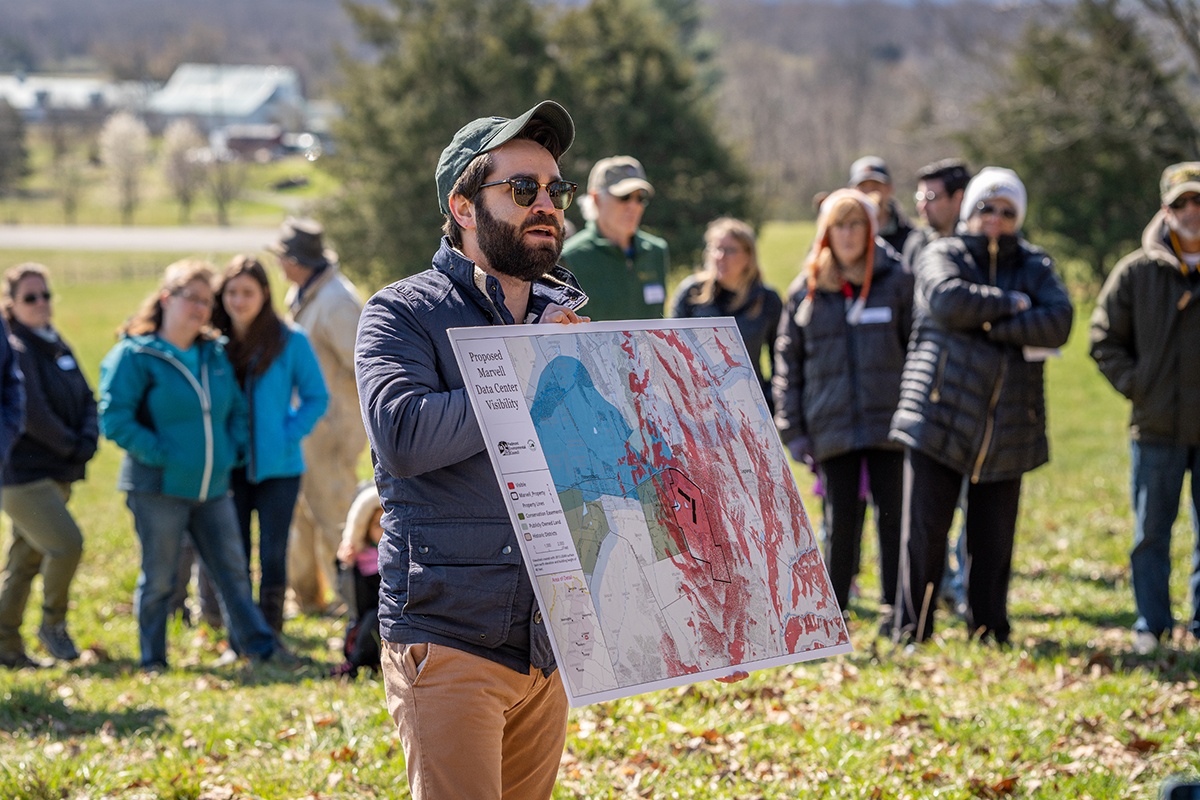
Loudoun County – Zoning Ordinance and Rt. 15 Plan: As Loudoun rewrites its zoning code, PEC is working to ensure that the final version prioritizes smart growth and environmental conservation, thereby protecting the health, safety, welfare and quality of life of all those who live and work in Loudoun. The zoning ordinance was previously updated in 2003, which means many changes are needed to reflect current growth and development trends. PEC is advocating for the interests of residents and businesses with a long-term interest in the area, rather than developers who are trying to minimize regulations and maximize their profit.
The Rt. 15 widening and bypass of the Village of Lucketts, as approved by the Loudoun Board of Supervisors, could have significant and negative impacts on the environment and historic resources. PEC and partner organizations are in the process of commenting on impact studies for water and historic resources as required by the Clean Water Act and National Historic Preservation Act. PEC’s participation in this important process will help to reduce and mitigate impacts as the widening and bypass are designed.
Responding to Development Pressures
Data centers: Data center development in Northern Virginia has been accelerating for years, with storage capacity outpacing anywhere else in the world. Seventy percent of all internet traffic goes through Loudoun County, and data centers account for about 20% of Dominion Energy’s sales in Virginia — enough gigawatts to power hundreds of thousands of homes. The accumulation of data centers in so few localities, and increasingly in the Piedmont, and the corresponding demands on our electric grid have undeniable implications for farmlands, forests, historic resources, wildlife and communities. The buildings themselves can each take up over 500,000 square feet (equivalent to almost nine football fields), and whole complexes require even more acreage. PEC is concerned about the rapid pace at which they are being built, with the lion’s share of the burden falling on Culpeper, Fauquier, Loudoun and Prince William counties. PEC has held community events to encourage and support grassroots efforts to oppose poorly-sited data centers and the major transmission line expansions and electrical substations that often accompany them.
Dramatic increase in energy generation and transmission proposals: PEC supports shifting away from fossil fuels toward wind, solar and other renewable energy sources to meet electricity demand in Virginia. However, the explosive growth of the data center industry represents a major challenge to achieving that clean energy future. Virginia ratepayers are increasingly being asked to subsidize new transmission infrastructure and renewable generation to meet the massive energy demand of private corporations, like Amazon Web Services and its subsidiaries, instead of investing in a green energy future that offsets usage from our homes, local businesses, public transit and vehicles.
PEC recognizes that utility-scale solar will be an important part of Virginia’s clean energy transition, particularly as localities approve more data centers. Our concern lies in its potential footprint on the landscape. Virginia’s current approach to utility-scale solar siting, in which 58% of projects occur on forested lands, and nearly 25% occur on cropland, could result in the biggest rural land conversion the Piedmont has seen in the last 100 years — forfeiting the stability of our local food system and losing invaluable carbon sinks. To improve Virginia’s approach to solar, PEC worked with a broad coalition of partners in support of HB 206 during the 2022 General Assembly session. The legislation, which passed with strong bipartisan support, provides a path toward reasonable mitigation standards for utility-scale solar projects that significantly impact sensitive natural resources. In the past year, PEC evaluated and commented on utility-scale solar projects in Albemarle, Culpeper, Fauquier, Loudoun, Madison and Orange counties, with many more expected in 2023.
Protecting Historic Resources
One way PEC brings communities together around their heritage and legacy is through the documentation and preservation of historic resources.
At the state level: In 2022, PEC was a lead on SB 158 and HB 141, which established the Virginia Black, Indigenous, and People of Color Preservation Fund. This new state grant program is intended to help preserve and interpret historic structures, cultural landscapes and archeological sites important to underrepresented communities. The new fund was allocated five million dollars in its first year.
Rapidan River-Clark Mountain Rural Historic District: The final rounds of surveys of this Rural Historic District are taking place this fall, including all of the historically African American community of Buena, near Rapidan, in Culpeper County. The goal is to have a draft of the nomination to the Virginia Department of Historic Resources for review early in 2023.
Southwest Mountains Rural Historic District: PEC is working with community members in Albemarle County to research and document the history and associated historic resources of African American communities in and around the Southwest Mountains.
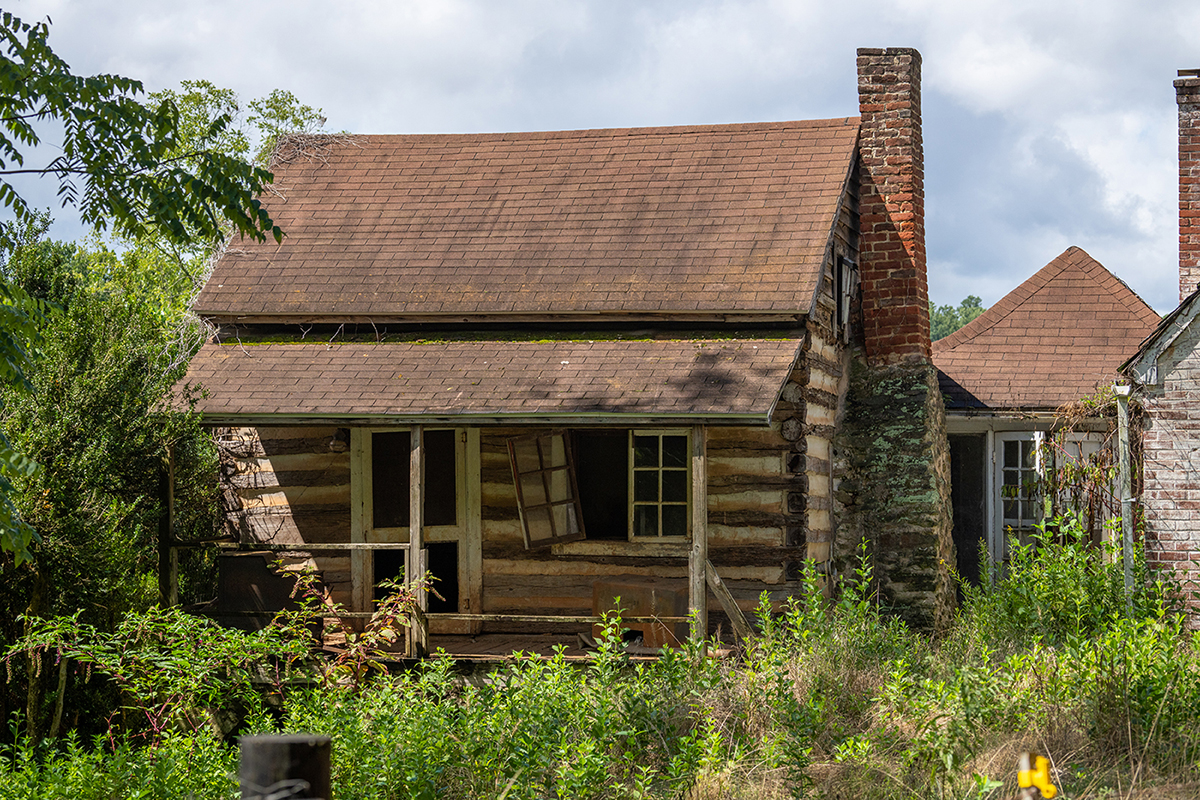
Aldie Assemblage: PEC is negotiating the purchase of the Aldie Assemblage, a 6.42-acre property located in Aldie, Virginia. PEC hopes to preserve the historic tavern building, forested slopes that mark the terminus of the Bull Run Mountains, and land that fronts Little River, part of the Goose Creek and larger Potomac watershed. This project aligns with PEC’s long-standing conservation efforts to maintain the historic and scenic character of the rural landscape along the Rt. 50 corridor, to conserve the unique natural and cultural features of the Bull Run Mountains, and to protect local water quality.
Weighing In on Development Proposals
Glamping in Greene County: In late August, the Greene County Board of Supervisors denied the expansion of Lydia Mountain Lodge and Log Cabins. The rejection marked a victory for Protect Rural Greene, a local community organization formed specifically against the special use permit amendment. PEC worked with this group and helped raise concerns about the consistency of the proposal with the County’s Comprehensive Plan.
Wilderness Crossing in Orange County: PEC has been empowering local residents to speak out in opposition to Wilderness Crossing, a 2,600-acre rezoning and development proposal in Orange County at the intersection of Rt. 3 and Rt. 20 and adjacent to Wilderness Battlefield. With a proposed 5,000 units, this project would be the largest land rezoning in Orange County history. Although there are many problems with the proposal, the most alarming is the toxic legacy from gold mining on the property, which could impact the health, safety and welfare of Orange residents and downstream communities. The property contains numerous unreclaimed gold mines that have not been properly closed off or cleaned up of contaminants such as mercury, arsenic, cadmium and lead. With partners, PEC hosted a town hall in late October to further engage the community on the issues related to this proposal.
Mentoring the Next Generation of Conservation Professionals
PEC’s 2022 Summer Fellowship Program welcomed twelve fellows from across the country for its first ever hybrid learning experience — six weeks online and two weeks in the Piedmont, to learn about local conservation issues from PEC staff. At the conclusion of the program, the fellows teamed up to complete six joint practicum projects addressing complex environmental challenges, from food justice, to utility-scale solar sprawl, to affordable housing, to private lands management.
Investing in Public Access
PEC is dedicated to improving active mobility and promoting everyday access to the outdoors. Parks, trails and sidewalks provide opportunities for recreation, weave communities together and create a sense of place.
Biscuit Run Park in Albemarle: PEC is working to connect the 1,200-acre Biscuit Run Park (scheduled to open in 2023) to surrounding neighborhoods and the wider community, including Southwood, a mobile park that is being redeveloped into up to 1,000 residences with permanent affordability. A bridge connection would provide a safe and welcoming connection to the County’s newest park for residents who live next door, but are separated from it by a wide stream. PEC is facilitating leadership and stakeholder engagement that includes Albemarle County, Habitat for Humanity, Environmental Services, the Boys and Girls Club and others.

Town to Trail in Gordonsville: PEC has been working with the Town of Gordonsville to preserve open space by developing a four-acre park network connecting Verling Park and Fireman’s Fairgrounds, which will include two parcels donated by PEC. The Town of Gordonsville recently secured a federal grant award of $1.6 million to modernize the park, including a new pool. PEC was a key partner in securing this funding to match funds raised in a grassroots effort by community members.
Thornton River Trail in Sperryville: With funding provided by PEC’s Krebser Fund for Rappahannock County Conservation, the Sperryville Community Alliance is working to create a Master Plan and Invasive Species Management Plan for the Thornton River Trail. Plans will guide future expansions of the trail network to continue connecting residents across the village.
Woolen Mills in Charlottesville and Albemarle: Overcoming connectivity gaps in the Charlottesville/Albemarle urban core has been a priority at PEC for the last five years — a suite of projects around Woolen Mills highlights this effort. PEC was able to orchestrate a multi-partner pedestrian bridge over Moore’s Creek at the Wool Factory. The new bridge filled a missing piece in the Rivanna Trail loop and was the site of a major celebration of the Rivanna Trail Foundation’s 30th anniversary in September.
PEC also led advocacy and community engagement that resulted in the local Planning District submitting an $18 million VDOT SMARTSCALE application for a pedestrian bridge over the Rivanna River, as well as multiple trail connections. If funded, these projects will provide an important regional connection, linking neighborhoods, jobs, parks, shopping, healthcare and other community resources.
Fifeville Trail in Charlottesville: At the request of neighborhood leaders, PEC helped coordinate numerous community groups and obtained almost $25,000 from the Virginia Outdoors Foundation’s Get Outdoors program for the creation of the Fifeville Trail. This trail, which is located on private land but is open to the public, connects residents of a low-income housing development and adjoining neighborhoods directly to Tonsler Park, eliminating the need for residents to walk more than a half-mile along a dangerous Fifth Street with fast-moving traffic and no sidewalks. The trail system also connects the Fifth Street corridor to the Cherry Avenue business district, UVA Hospital and other jobs and basic community resources.
Connecting Consumers and Farms
One way of building appreciation for the rural landscape is through the local food system.
The Community Farm at Roundabout Meadows: In its fourth season, the Community Farm continued to diversify its offerings and worked to provide a consistent supply of fruits, vegetables and eggs (from a rotationally grazed flock of chickens) to Loudoun Hunger Relief. Closing out 2022, the farm will have donated a total 35,000 pounds of food over the year. The farm has also continued its public volunteer days with over 1,400 hours volunteered thus far by community members. After the great success of field trips to the farm this spring, an additional 165 students visited the farm over the course of autumn to learn about regenerative agriculture, land conservation and soil health.
PEC is also working with Virginia Forestry and Wildlife Group to develop an invasive species removal plan for the property.
Gilberts Corner Market Property: PEC is currently requesting proposals for the revitalization of the Gilberts Corner Market. New gates and fencing along the entrances were installed in September to address site safety and security concerns. PEC is seeking to renew our lease with Loudoun Valley Homegrown Markets as they continue to manage and build a popular weekend farmers market. Wegmeyer Farms reported a successful strawberry season at the Corner and tested a new endeavor, pick-your-own sunflowers, which added vibrancy to the market.
Buy Fresh Buy Local: Distributed bi-annually by PEC, our local food-focused guides offer a one-stop source connecting consumers to fresh fruit, vegetables, dairy, meat and more, by way of local farmers, farmers markets, CSAs, and other local food venues. The guide is sent to over 300,000 households across the Piedmont.
Our work is only made possible with your support! If you’d like to help us achieve stronger outcomes for the Virginia Piedmont in 2023, please consider making a contribution before the end of the year.

